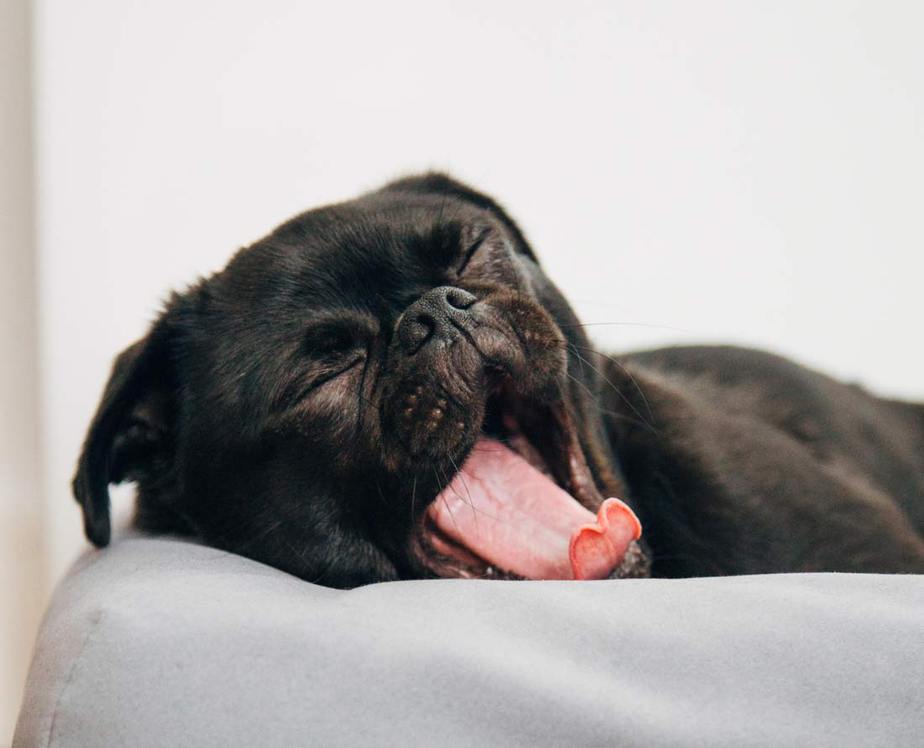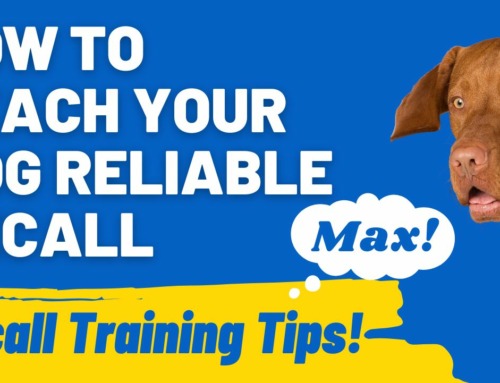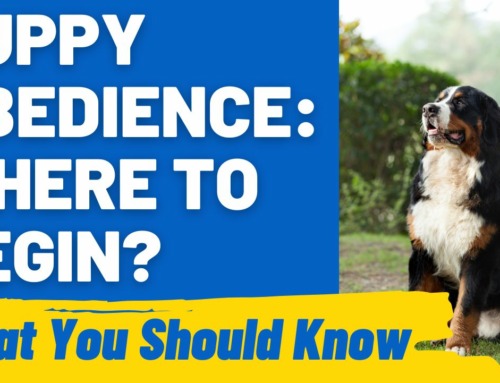Lights out, puppy is settled, you curl up in your bed and prepare to sleep. And then you hear it… your puppy begins to snore. If you have a snoring puppy this article is for you, as we delve into why it happens and if it’s a problem.
Puppies snore in much the same way we humans do; there’s a restriction in air flow. Any obstruction in the nasal passage or nostrils will vibrate as air passes over them and create that cute, or not so cute, familiar sound.
Is it a Problem?
Snoring puppies can be very cute, but it absolutely can be a sign of a deeper issue that can be of concern.
Two main concerns for snoring puppies are Brachycephalic Airway Syndrome and Sleep Apnea.
Brachycephalic Breeds
If you have a Brachycephalic puppy, then it’s likely they will snore. These breeds have shorter heads with flatter noses. Because of this, there’s a strong likelihood there will be a constriction that will cause snoring.
These breeds are Brachycephalic dogs:
- Affenpinscher
- Boston Terrier
- Boxer
- Brussels Griffon
- Bulldog
- Bullmastiff
- Cane Corso
- Chihuahua (apple-headed)
- Chow Chow
- Dogue de Bordeaux
- English Mastiff
- French Bulldog
- Griffon Bruxellois
- Japanese Chin
- King Charles Spaniel
- Neapolitan Mastiff
- Pekingese
- Pug
- Rottweiler
- Shih Tzu
- Valley Bulldog
If you own a puppy from this list of breeds, and they’re snoring, then you should have them checked by your vet for Brachycephalic Airway Syndrome.
This syndrome affects the upper airways of your puppy, and can lead to other problems which include:
Lung and respiratory issues – airways can weaken and collapse, causing further obstruction.
Gastritis and gut issues – Reflux can occur and complications in gut health. Signs can include regurgitation and vomiting.
Look for these signs to indicate your puppy may have Brachycephalic Airway Syndrome:
- Snoring
- Snorting
- Labored breathing
- Fainting after exercise
- Gagging
- Retching
- Vomiting
- Reflux
If your puppy is a Brachycephalic breed, and they have only snoring and perhaps some snorting after exercise, but not too much, then it’s likely they just have a congested airway.
For the most part, this won’t affect their daily lives too negatively.
If your dog is a little older than a puppy then be sure to read our post Dog Snoring: Why and What to do
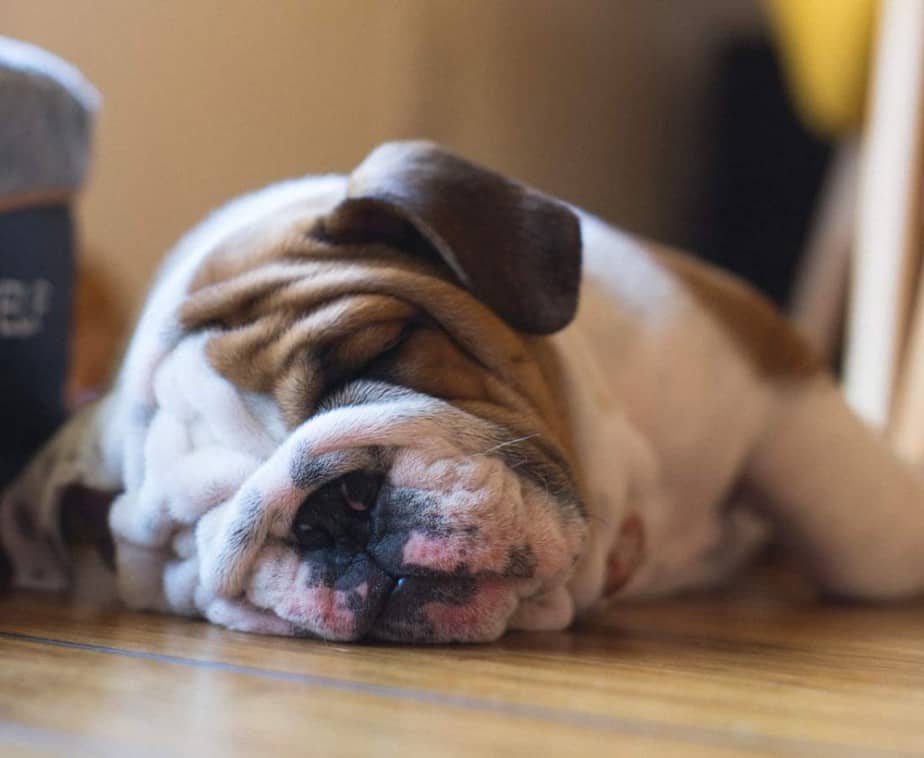
Non-Brachycephalic Breeds
If you have a puppy such as a Labrador or Dachshund, or German Sheppard or a Poodle, or any other long-nose breed, then it’s likely their snoring isn’t an issue. However, you should watch for Sleep Apnoea.
Sleep Apnea
Just like humans, puppies can be affected by Sleep Apnea, a condition in which breathing repeatedly stops and starts during sleep. This is more common in overweight dogs but can be a cause of early death in puppies.
Look for any of these signs and if you suspect your puppy might have it, then be sure to take them to your vet:
- Interrupted breathing in sleep
- Snorting in sleep
- Snoring
- Gasping or choking in sleep
Other Reasons for Snoring
Head Position
If your puppy snores only sometimes, then it’s likely they’re sleeping with a different sleep position. If they don’t snore when they sleep on their side, but do when they sleep on their chin, their head position is pushing up their nasal passage to form the restriction that causes the snore.
In this case, the snoring won’t be of concern, other than to your ears when you’re trying to sleep at night.
Remedy: Gently move them onto their side with calm petting so as not to interrupt their sleep too much.
You can also look at purchasing a circular bed. This can promote a curled position, rather than a straight belly position that is more prone to causing snoring.
Allergens
In most of the cases of dog allergies, it’s the skin which is affected. Occasionally though, it can affect the respiratory system.
This can present itself as wheezing, sneezing, coughing, and if it has inflamed the nasal passages or airway, it can cause snoring.
If your puppy has had a sudden onset of snoring, check those other symptoms and if their skin is at all inflamed. If you are concerned they have an allergy, you should take them to the vet.
It can be difficult to find the cause of the allergy, but here are list that are common to dogs:
- Seasonal – pollen
- Plastic bowls for water and food – try using a metal bowl
- Food allergies – the most common are beef, lamb, chicken, eggs, and wheat products. Also, dairy can be an issue for dogs.
- Parasites – mites
- Chemicals – house cleaning products
- Shampoos – chemicals in their shampoo
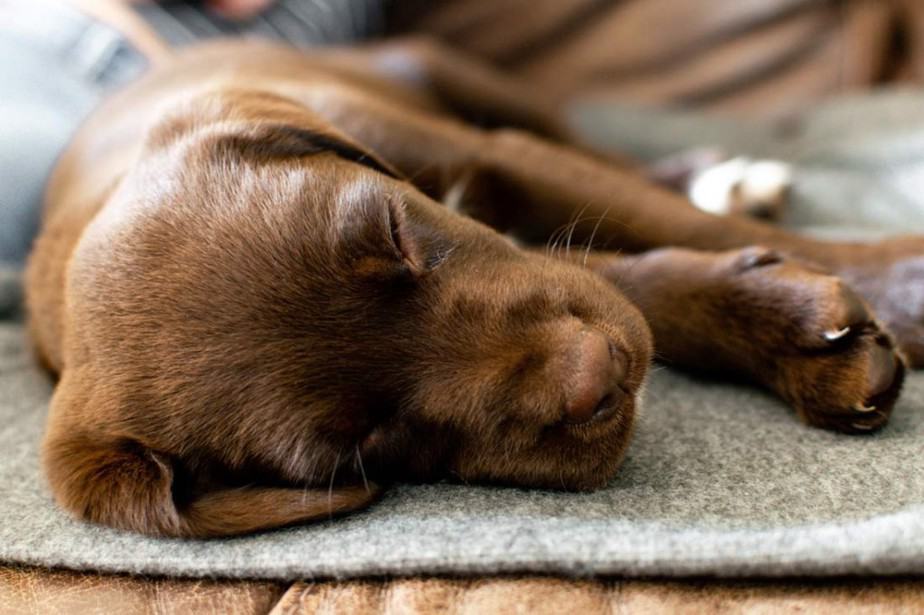
Dust
Wash their bedding and blankets regularly to keep dust and allergens down. Puppies live their lives low to the ground and can breathe in the dust. Be sure to vacuum and sweep regularly.
Obstruction
Puppies are curious creatures, often digging and finding their way into places they shouldn’t be.
If your puppy’s snoring is new to them, they could’ve sniffed in something that is now obstructing their nasal passage.
If their snoring remains after 48-hours, your vet will be your first port of call.
Medical
An obstruction could be medical related, such as an abscess, growth, or enlarged lymph node. If one of these becomes infected, it will be a serious health concern.
Watch for degradation of their health, and if their snoring becomes louder, then you should take your puppy to the vet immediately.
Smokers
If you or your partner are smokers, second-hand smoke can cause breathing difficulties for your puppy. This can also lead to asthma and bronchitis.
It’s not advised to be a smoker with a puppy, but if you are, then smoke outside where your puppy will be less exposed.
Dry Mouth
If your puppy is an open-mouthed sleeper, then they could have a dry throat and airway. A humidifier can assist their breathing by keeping the air moist.
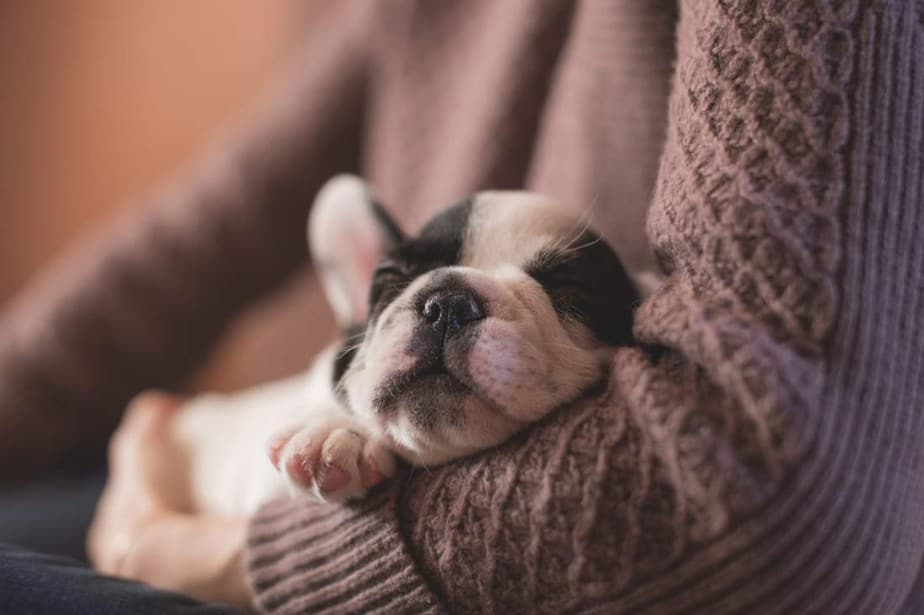
Fungal Disease
As your puppy has moist nasal passages, a fungus can develop inside called Aspergillosis.
This will be more common in puppies who spend a lot of time outside, as the mold is found in grass clippings, hay, and straw.
This condition will present itself with sneezing, wheezing, nasal discharge and of course, snoring.
This condition should be treated with a course of anti-fungal medicine prescribed by a veterinarian.
Common Cold
If your puppy is sneezing, has the sniffles and is suddenly snoring, they could have a cold. Just like us, when they get colds, their airway can become clogged and inflamed.
Overweight
Even young, some pups can become overweight. It’s easy to overfeed them if they’re food obsessed and love fatty treats. The excess fat can gather around their airway and nasal passage, restricting their breathing and causing snoring.
Be sure to have your puppy weighed. If they exceed their recommended weight, then it’s time for your little pup to go on a diet.
My Dog Snores When I Pet Them
If this is the case, then you just have a beautiful pooch who loves it when you pet them!
When you pet your dog, they will breathe deeply, savoring the moment of bliss. This fast and large amount of air flow can be more congested than natural breathing, which is why they will snore.
Final Word
If your puppy has started snoring all of a sudden, it can be of concern as there are varying causes. If you can’t find the cause yourself within 48-hours, your puppy’s condition should be investigated further.
If your puppy has always been a snorer, or perhaps just snores at night-time, but they’re a high-spirited pup when they’re awake, then you have nothing to worry about.
Except for maybe having to purchase a set of ear plugs!
Reference: https://en.wikipedia.org/wiki/Brachycephalic_airway_obstructive_syndrome

